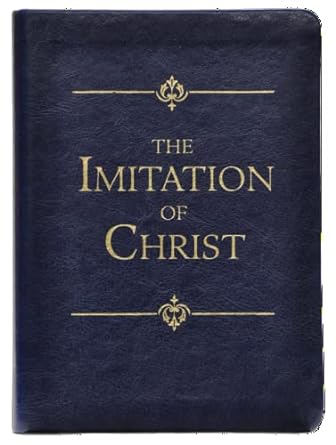
Ancient Anglican
A Modern Perspective on Early Christian Thought.
New on the Blog
Imitation of Christ – Book 1, Ch.21-25, pt.1
In these final chapters of Book 1, á Kempis focuses on the final stages of purgation: remorse, misery, death, and judgment. (It’s Good Friday all over again.)
Imitation of Christ – Book 1, Ch.17-20, pt.1
In these meditation, Kempis gives his his insights into the virtues of discipline, perseverance, service, training, and silence. He commits us to look at the example of the saints who have displayed those virtues that we should emulate them.
Imitation of Christ – Book 1, Ch.13-16, pt.2
Whenever we wish damnation on others, we attack Christ himself, annul his Passion, and so compel him to undergo it again. Ultimately, when we lose patience with others and curse them we bring that same curse upon ourselves
Imitation of Christ – Book 1, Ch.13-16, pt.1
The commandment to keep from judging others, is not one we can volunatry keep, as if we could simply will ourselves not to judge; but rather it is the fruit of a humble heart turned towards God and with love towards your neighbor.
Imitation of Christ – Book 1, Ch.10-12, pt.2
As you read through chapter 12, think about whether trials and hardships themselves are Good or Evil. If they come from God, then they are the former but if God merely sends us the means with which to handle the trials, but not the trials themselves, then they are the latter.
Imitation of Christ – Book 1, Ch.10-12, pt.1
There is a difference, therefore, between obedience grounded in love and obedience predicated upon power. As you read through this meditation, think about whether obedience is a necessary good within a spiritual or ecclesiastical context. Should we all be obedient to someone?
Imitation of Christ – Book 1, Ch.5-9, pt.2
One of the great themes in The Imitation is that of simplicity. Within Chapter 5, á Kempis writes of needing to have simplicity in interpreting Scripture – “for we should look for profit in the writings rather than subtle expressions.”
Imitation of Christ – Book 1, Ch.5-9, pt.1
Within these chapters, á Kempis emphasizes our humility, not as an end unto itself, but as the means of emptying ourselves so that we can, as Peter writes, become partakes of the divine nature (2 Peter 1:4).
Imitation of Christ – Book 1, Ch.1-4, pt.2
In our readings through the Imitation of Christ, our questions will not be what was á Kempis’s purpose or intention in regard to a particular passage; rather we want to look at how that particular passage speaks to you personally and ultimately transforms you.
Imitation of Christ – Book 1, Ch.1-4, pt.1
Salvation is not about a change in location, but a change in being. It is about restoring the image of God into a fallen humanity. The first step in restoring this image is purgation which is Book 1.
Imitation of Christ – Introduction, pt.2
Merely reducing the work to the bullet points of its content impairs its overall message and power. Therefore, approach the book with a contemplative heart and not an analytical mind.
Looking Through the Cross – The Cross and Reconciliation / The Cross and Life, pt.2
As Jesus teaches us, for a grain of wheat to have life, it must first die. But upon its death, it is transformed into a stalk which produces fruit abundantly. So with Jesus, and so also with us, that death is the prerequisite to an abundant, transformative life.


